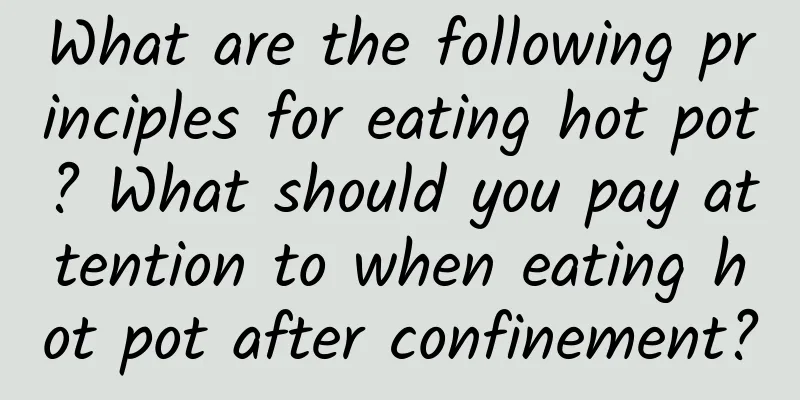People with high blood pressure have to do a lot of tests before taking medicine. Is it for "making money" or is it really necessary?

|
A friend left a message to Huazi, saying that his blood pressure was 165/100mmHg, and asked Huazi what antihypertensive medicine he should take. Huazi did not tell him what medicine to take, but asked him to go to the hospital for a checkup first. He was not satisfied with Huazi's answer and complained that he came to ask Huazi because he did not want to go to the hospital. Hospitals are all for making money, and if he went there, they would definitely give him a bunch of checkups. 1. The necessity of checking before taking antihypertensive drugs Huazi has met many people who, like this friend, only tell their blood pressure values and hope to find antihypertensive drugs suitable for them, which can help them stabilize their blood pressure and avoid the harm of high blood pressure. First of all, it should be affirmed that these people have a correct understanding of high blood pressure and know that by taking medicine regularly to control blood pressure, they can avoid the threat of high blood pressure to health. However, their understanding is still somewhat one-sided. Commonly used antihypertensive drugs are divided into five categories: "dipine", "lol", "pril", "sartan", and "diuretics". There are many specific drugs in each category. In other words, there are dozens of different drugs that can be called "antihypertensive drugs", but each drug is different. Each drug has its own indications and contraindications, and different patients have different sensitivities to drugs, so you can't just take it whenever you want. If the wrong medication is used, serious adverse reactions are likely to occur. For example, if a person with bilateral renal artery stenosis uses antihypertensive drugs such as "pril" or "sartan", acute renal failure may be induced. If a person with severe atrioventricular block uses antihypertensive drugs such as "lol", cardiac arrest may occur. If a person with gout uses diuretic antihypertensive drugs, acute gout attacks and uric acid kidney stones may be induced. Therefore, before taking antihypertensive drug treatment, it is necessary to undergo necessary medical examinations to determine the physical condition and avoid the risks caused by medication errors. I hope everyone understands that the examinations conducted before taking medicine are not for the hospital to "make money", but to protect their lives to the greatest extent. 2. What tests should be done before taking medicine? 1. 24-hour dynamic blood pressure: It is recommended to do dynamic blood pressure test first. Many people have high blood pressure values because they are too nervous during the measurement. For example, some people get nervous when they see a "white coat", and some people get nervous when they see a blood pressure monitor. But these people do not have true high blood pressure and do not need drug treatment. Dynamic blood pressure can be measured during the day when you are not prepared, and the blood pressure value is more accurate, which can eliminate the influence of "white coat hypertension". It can also monitor blood pressure fluctuations for 24 hours and provide precise guidance on the time and dosage of medication after hypertension is diagnosed. 2. Fundus examination: Hypertension can lead to hardening of the arterial system throughout the body. The retinal artery is the only artery in the human body that can be directly observed. Through fundus examination, the degree of hardening of the retinal artery, as well as whether there is edema, bleeding, etc., can be seen, which is helpful for the treatment, evaluation and prognosis of hypertension. 3. Urinalysis: The kidney is one of the target organs damaged by hypertension. Urinalysis can help you understand the extent of damage to the kidney caused by hypertension and determine whether you need to use antihypertensive drugs that are more protective of the kidney. If there are too many blood cells and urine protein in the urine, you should consider whether it is secondary hypertension caused by chronic inflammation of the kidney. In addition to lowering blood pressure, you should also take anti-inflammatory treatment. 4. Blood biochemical examination: Measuring blood sugar, blood lipids, blood uric acid, blood creatinine, electrolytes and other indicators can determine whether the hypertension is caused by kidney disease, and can also determine the extent of the impact of hypertension on kidney function. If there is hyperlipidemia and diabetes, the impact of other diseases should be considered when choosing medication. 5. Ultrasound examination: Ultrasound examination of the heart and kidneys can determine whether there are problems with the shape, size and structure of the organs. Ultrasound examination of the carotid artery and renal artery can determine whether there are atherosclerotic plaques and arterial stenosis, and can determine the texture of the plaques and the degree of arterial stenosis, which is an important reference for deciding on medication. 6. Other examinations: For patients with other diseases or in poor physical condition, other examinations may be required. For example, those with central nervous system lesions need to undergo CT and MRI examinations. Those with poor liver function need to undergo regular liver function tests during the entire medication period. Those with endocrine problems also need to undergo related hormone measurements and other examinations. To sum up, in "The Art of War", there is a saying that "know yourself and know the enemy, and you will never be defeated in a hundred battles." The same should be true for the treatment of hypertension. The examinations that need to be done before taking medicine are not for the hospital to "make money". Doctors are not gods. Only modern technology can help doctors understand the patient's condition more carefully and ultimately make more correct medication choices. I am pharmacist Huazi, welcome to follow me and share more health knowledge. |
<<: Why is mandarin fish more expensive than sea bass? How to remove the fishy smell of sea bass
Recommend
Scientific iodine supplementation helps children gain a head start in intelligence
Dahe.com News: Everyone knows that iodine deficie...
Can I have sex during the first 3 months of pregnancy?
Cigarettes and ethanol often affect the fertility...
What is the relationship between Tang Xue and Bian Cheng? Did Tang Xue and Bian Cheng get back together?
Speaking of "Squid Stewed in Honey", it...
If you didn't smoke today...
May 31, 2023 is the 36th World No Tobacco Day. In...
Is non-invasive DNA better or amniocentesis better?
Non-invasive DNA is mainly used to detect chromos...
What should I do if I cannot have children due to moderate cervical erosion?
Getting pregnant is the dream of every married gi...
Does wisdom teeth in pregnant women affect the fetus?
Wisdom teeth can occur in anyone, such as pregnan...
Why can't the sweet and sour pork be coated with paste? How to make the sweet and sour pork paste
Sweet and sour pork is very delicious when we eat...
What is the function of RNA injection?
Have you heard of RNA injection? A friend asked m...
What Chinese medicine can be used to treat gynecological inflammation?
Due to the special physiological structure of wom...
Does a new car need crystal coating? What are the benefits of car crystal coating?
Gold plating mainly protects the paint surface. C...
Girls' broken palm
From ancient times to the present, everyone think...
What is the matter with Qiuli's old yellow leaves? How to remedy Qiuli's old yellow leaves
Autumn lily is a common flower plant in life. It ...
Slight bleeding after each intercourse
Some female friends will experience bleeding afte...
Clotrimazole vaginal suppository
Important reminder: There are many gynecological ...









